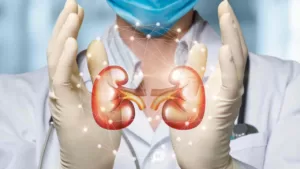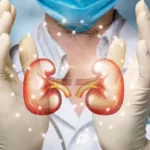The Best Fluffy Pancakes recipe you will fall in love with. Full of tips and tricks to help you make the best pancakes.
Strep throat is a common yet uncomfortable condition that can affect both children and adults. From understanding the symptoms and identifying the differences between strep throat and a regular sore throat, to exploring effective prevention strategies and seeking medical attention when necessary, this comprehensive guide aims to provide you with all the essential information you need to know about strep throat. Whether it’s the duration of the illness, the contagious period, or the possible complications, we’ve got you covered.
In this article, we will delve into the causes, risk factors, and effective prevention strategies for strep throat, as well as the white spots that may appear in the throat. We will discuss the diagnosis and treatment options, including the use of antibiotics and home remedies. So, if you’re looking to gain a thorough understanding of strep throat, you’re in the right place. Let’s get started.
Key Takeaways:
- Strep throat typically lasts for 3-7 days, but can last longer if left untreated.
- White spots in strep throat are caused by pus and usually appear on the back of the throat and tonsils.
- Strep throat is highly contagious and can lead to serious complications if left untreated, so seeking medical attention is important.
Understanding Strep Throat
Understanding Strep Throat involves gaining insights into the symptoms, diagnosis, treatment, contagious period, possible complications, prevention strategies, and the causes of this bacterial infection, affecting the throat and tonsils. It is essential to be aware of the risk factors, effective prevention strategies, and the significance of seeking medical attention when dealing with Strep Throat.
Strep Throat often manifests with symptoms such as sudden and severe sore throat, difficulty swallowing, fever, swollen lymph nodes in the neck, and sometimes a fine, red rash over the body, especially in younger children. Diagnostic procedures for Strep Throat commonly include a rapid strep test or throat culture to identify the presence of Group A Streptococcus bacteria. Treatment options usually involve antibiotics, rest, and ample fluid intake.
The contagious period of Strep Throat typically lasts until 24 hours after commencing antibiotic treatment. Failing to undergo treatment can extend the contagious period to approximately three weeks from the onset of symptoms. Potential complications of untreated Strep Throat can be serious, including rheumatic fever, scarlet fever, and post-streptococcal glomerulonephritis.
Prevention strategies for Strep Throat encompass good hand hygiene, avoiding close contact with infected individuals, and refraining from sharing personal items. Understanding the causes of Strep Throat involves recognizing that it is primarily caused by the bacterium Group A Streptococcus, transmitted through respiratory droplets or direct contact with an infected person.
What is Strep Throat?
Strep Throat, also known as Streptococcal pharyngitis, is a bacterial infection that primarily affects the throat and tonsils, causing inflammation, discomfort, and potential complications if left untreated.
Identifying Symptoms of Strep Throat
Identifying Symptoms of Strep Throat involves recognizing common indicators such as fever, swollen glands, and specific throat characteristics that require medical attention and potential antibiotic treatment to combat the strep bacteria.
Common Symptoms
Common symptoms of Strep Throat include fever, swollen glands, and specific throat characteristics like white patches, redness, swelling, and exudates, which can be identified through a throat examination and diagnostic tests such as a throat swab, rapid strep test, or throat culture.
Strep Throat typically presents with a sudden onset of fever, often over 101 degrees Fahrenheit, accompanied by tender and swollen lymph nodes in the neck. An important indicator is the presence of white patches or streaks of pus on the tonsils or back of the throat, often accompanied by redness and swelling. These symptoms can lead to difficulty swallowing, speaking, and even breathing, highlighting the significance of prompt medical attention.
Plus visible symptoms, examination of the throat may reveal small, red spots on the roof of the mouth and the back of the soft or hard palate. The throat may exhibit greyish-white or yellowish drainage, known as exudates, indicating a potential Strep Throat infection.
Less Common Symptoms
Less common symptoms of Strep Throat may include the presence of a rash, which could indicate potential complications or the presence of viral infections that require careful consideration and appropriate antibiotic treatment to prevent severe consequences in children and adults.
It is important to note that not all individuals with Strep Throat will experience the typical symptoms such as sore throat, fever, and swollen lymph nodes. The presence of a rash can be particularly worrisome, as it may signify the development of scarlet fever, a potential complication of Strep Throat. Some individuals, especially adults, may exhibit minimal or no symptoms at all, making it challenging to diagnose the condition promptly.
The importance of antibiotic treatment cannot be overstated in the case of Strep Throat. Antibiotics not only alleviate symptoms and aid in faster recovery but also play a crucial role in preventing serious complications such as rheumatic fever and kidney inflammation. Without timely intervention, these complications can pose significant health risks.
The prevalence of Strep Throat varies across different age groups, with young children and adolescents being at higher risk. It’s worth noting that it can also affect adults, albeit less frequently. This highlights the importance of staying vigilant about potential symptoms, especially in households with individuals of varying age groups.
Diagnosing Strep Throat
Diagnosing Strep Throat relies on the use of rapid strep tests, throat cultures, and the differentiation from viral infections, enabling the identification of strep bacteria and the initiation of appropriate antibiotic treatment in children and adults.
Treatment for Strep Throat
Treatment for Strep Throat involves the administration of antibiotics, antibody treatment for acute delayed complications, and supportive care measures such as a soft diet, necessitating medical attention and guided by diagnostic results from throat swabs, rapid strep tests, and throat cultures to address potential complications and prevent long-term consequences in children and adults.
Use of Antibiotics
The use of antibiotics is a crucial aspect of treating Strep Throat, aiming to eliminate strep bacteria and prevent potential complications such as rheumatic fever, kidney inflammation, and autoimmune inflammatory arthritis in both children and adults.
Antibiotics play a vital role in combating the invasive streptococcal bacteria, effectively eradicating the infection and minimizing the risk of the infection spreading to other parts of the body. By targeting the source of the illness, antibiotics help to relieve the painful symptoms and reduce the duration of illness.
Additionally, appropriate antibiotic treatment can significantly lower the likelihood of serious complications associated with Strep Throat, particularly in cases where the infection remains untreated. It is crucial to complete the full course of prescribed antibiotics to ensure complete eradication of the bacteria and prevent the recurrence of the condition.
Home Remedies
Home remedies for Strep Throat may include the use of over-the-counter pain relievers like ibuprofen or acetaminophen to alleviate discomfort and reduce fever in both children and adults.
These medications can help manage the symptoms of Strep Throat, such as sore throat, difficulty swallowing, and swollen glands.
Ibuprofen is effective in reducing inflammation, which can help lessen the severity of the throat pain.
Acetaminophen, on the other hand, can help lower fever associated with Strep Throat.
It’s important to follow the recommended dosage and guidelines provided on the medication packaging or as advised by a healthcare professional.
Duration of Strep Throat
The duration of Strep Throat can vary, but swift resolution is essential to prevent potential complications such as rheumatic fever, kidney inflammation, and autoimmune inflammatory arthritis in both children and adults.
Contagious Period
The contagious period of Strep Throat underscores the significance of hand hygiene, disinfecting, and minimizing transmission through respiratory droplets, necessitating caution during throat exams and the management of the infection in both children and adults.
Possible Complications
Possible complications of Strep Throat may include the development of rheumatic fever, kidney inflammation, and autoimmune inflammatory arthritis, particularly in vulnerable groups such as children and adults, necessitating vigilant monitoring and prompt treatment.
Preventing Strep Throat
Preventing Strep Throat involves implementing effective measures such as maintaining hand hygiene, disinfecting common surfaces, and minimizing transmission, particularly in children and adults, to reduce the risk of pharyngitis and tonsillitis.
Seeking Medical Attention
Seeking medical attention for Strep Throat is crucial, particularly for children and adults, to ensure timely diagnosis and appropriate treatment for pharyngitis and tonsillitis, minimizing the risk of potential complications.
Comparing Strep Throat with Regular Sore Throat
Comparing Strep Throat with a regular sore throat requires an understanding of the distinctive symptoms, diagnostic approaches, and treatment strategies, particularly in children and adults, to ensure accurate differentiation and appropriate management.
Understanding the Causes of Strep Throat
Understanding the causes of Strep Throat involves examining the role of streptococcus bacteria, modes of transmission, and vulnerability factors in children and adults, shedding light on the pathogenesis of pharyngitis and tonsillitis.
Risk Factors for Strep Throat
Risk factors for Strep Throat encompass aspects such as exposure to streptococcus bacteria, modes of transmission, and susceptibility in children and adults, highlighting the predisposing factors for the development of pharyngitis and tonsillitis.
Effective Prevention Strategies
Effective prevention strategies for Strep Throat include promoting hand hygiene, implementing disinfection practices, and minimizing transmission, particularly in children and adults, to mitigate the risk of developing pharyngitis and tonsillitis.
Author Information
The Author Information section provides insights into the expertise and professional background of Jake Mefford, an authoritative source from OSF OnCall Urgent Care, offering valuable knowledge and guidance on healthcare topics.
Frequently Asked Questions
How long does strep throat last?
Strep throat typically lasts for a week to 10 days, but can last longer if left untreated. It is important to seek medical treatment if symptoms persist for more than a few days.
What are the white spots in strep throat?
White spots in the throat can be a sign of strep throat, as they are caused by the buildup of pus and bacteria in the tonsils. These spots may also be accompanied by redness and swelling in the throat.
Is strep throat contagious?
Yes, strep throat is highly contagious and can be spread through contact with droplets from an infected person’s cough or sneeze. It is important to practice good hygiene and avoid close contact with others to prevent the spread of the infection.
What are the common symptoms of strep throat?
In addition to white spots in the throat, other common symptoms of strep throat include a sore throat, difficulty swallowing, fever, swollen lymph nodes, and a red rash on the body. These symptoms may vary from person to person.
How is strep throat infection diagnosed?
Strep throat can be diagnosed through a throat culture or a rapid strep test, in which a sample of mucus from the throat is tested for the presence of strep bacteria. A physical exam and evaluation of symptoms may also be conducted by a healthcare professional.
Can strep throat be treated?
Yes, strep throat can be effectively treated with antibiotics. It is important to complete the full course of medication as prescribed by a doctor, even if symptoms improve, to fully eradicate the infection and prevent it from returning.








